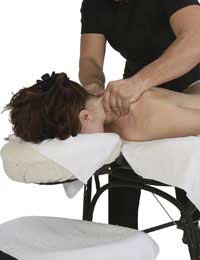Daily Persistent Headaches

Daily persistent headaches also known as chronic daily headaches, affect approximately five percent of adults. They will usually occur for at least fifteen days in a given month and may even strike on a daily basis. While most people will experience a headache on occasion, those with chronic persistent headaches suffer debilitating headaches on a regular basis.
The pain of such frequent headaches can have a strong negative impact on work, home life and general daily functioning. Chronic daily headaches are usually classified as primary or secondary. Primary ones are those that develop over time, often slowly and become more frequent and intense. They often develop in people who have suffered from other headache types, such as migraine.
A primary daily persistent headache that is shorter than four hours can be a cluster headache or a chronic paroxysmal hemicrania. Those longer than four hours may be a tension headache, chronic migraine, hemicrania continua or new daily persistent headache.
Secondary chronic persistent headaches are caused by an underlying illness or physical condition. Rebound headaches, which result from medication overuse, may also develop into chronic daily headaches.
What Causes Headaches to Become Chronic?
It is not known exactly why headaches evolve into daily, frequent ones. Genetics are suspected to play a role so if you have a family member who suffers from frequent headaches, it is more likely that you will as well. Other factors that may increase your risk of developing these headaches are:- Depression
- Anxiety
- Medication overuse
- Stimulant use, such as cigarettes or caffeine
- Sleep disorders
- Spine injury
- Any inflammatory disorders
- Nervous system conditions
- Infections
Treating Daily Persistent Headaches
Because these headaches are so persistent, as the name implies, they can be very challenging to treat. Some of the more common medications used are:- Anti-depressants
- Beta-blockers
- Calcium channel blockers
- Anti-convulsants
- Non steroidal anti inflammatory drugs (NSAIDS)
- Muscle Relaxants
Alternative Therapies
Alternative therapies such as acupuncture or deep breathing exercises can be helpful treatments. Counselling or other similar therapies are also helpful for developing effective coping mechanisms. Therefore, despite not directly addressing head pain, they can still help you to function well with your headaches. Some physical therapies may also provide relief if your headaches are occurring daily due to occupational postures or the effects of standing for extended periods of time.A physical therapist can work with you to encourage better posture if you sit regularly at a computer. They may also show you options for neck rests or other props to alleviate discomfort during the day while you work. Often, relieving muscle tension, particularly in the neck area, is enough to improve the outlook for chronic persistent headaches. Massage is another consideration if your headaches are related to posture or muscle tension. It's also important to exercise regularly, as exercise releases endorphins, the body's 'feel good' chemicals.
Due to the constant and sometimes aggressive nature of chronic persistent headaches, they can be frustrating and challenging to treat. These headaches can prevent functioning at work and home as well as interfering with social activities. A willingness to try alternative therapies alongside your doctor directed medical treatment can help to get you back into the pain-free swing of daily life.
- Are Migraines Linked With Stroke?
- Are Sleep Headaches Rare?
- What is a Spinal Tap Headache?
- What Causes Allergy Headaches?
- What is the Headache Impact Test?
- The Cost of Headaches in the UK
- Types of Headache: Facts and Figures
- Could My Headache Mean a Brain Tumour?
- Flicker Illness
- Hormone Headaches
- Headaches After Head Injuries
- Headaches Caused By Infection
- Sinus Headaches
- Headaches Caused by Tensions and Stress
- Headaches During The Night
- Headaches Caused By Brain and Skull Abnormality
- Chronic and Hemicrania Continua Headaches
- Cluster Headaches
- 'Ice Pick' Sudden and Intense Headaches


Re: Migraines and Menopause
I have at 51yrs, only recently found out (thro' blood test) I am going thro' the menopause And just recently started with bad migraines…
Re: Headache With Pins and Needles: Is This Serious?
I’ve had a headache for the past 3 days however I am on my period so didn’t think anything of it however…
Re: Migraines and Menopause
I suffered horrid migraines in my teenage years, which re-appeared when I was 40.... now 54 and having developed all symptoms of…
Re: Flicker Illness
This is first time I have researched a condition that I have developed in only the last four years, and as of this date am fifty four years old. I…
Re: Migraines and Menopause
I started with headaches from about March this year all down in the back of my neck and across the front of my head. I’ve had one period…
Re: Migraines and Menopause
Hello I am going through early menopause I’m only 38 and have been feeling unwell for six months doctor has put me on HRT but I have been…
Re: The Cost of Headaches in the UK
I have had constant headaches for about 4 weeks. I have been to the opticians but everything is fine. My GP is not concerned…
Re: Migraines and Menopause
I've been suffering with headaches for 8 months now. My last period was march this year. The headaches are as follows tightness around…
Re: Migraines and Menopause
Im really grateful to have found this page. A few months back I had a thunderclap headache and was rushed to ED for all the usual tests.…
Re: Scalp Pain: What Causes It?
I cannot consume any additives, preservatives or dyes. Today I ate about a tsp of the potato salad I made for a picnic. It had…